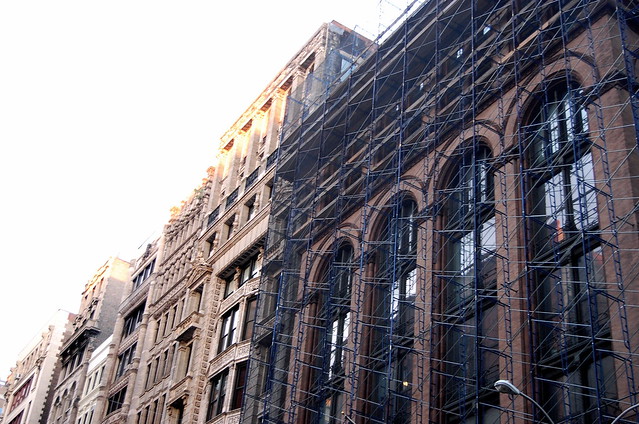This was going to be a different type of post - a show & tell of spreadsheets I've made over the years to optimize cognitive load out of my life. While writing the draft, I realized I hadn't actually used the spreadsheets in a while, yet the load hadn't come back. I figured out that while I'd used tech to save time (it did), the more I used it, the more I built muscle memory as I understood myself better, and the less I needed it in the end. I had unconsciously built rituals around the very tasks I was trying to offload.
Exhibit A: Horowitz, the spreadsheet that picked out my clothes
I used to hate getting dressed in the morning - I didn't know what my style was (specifically in a professional setting), and like most people always felt like I had nothing to wear. I tried to fix this with a spreadsheet, as one does - I built a categorized clothing inventory, threw it into a Google sheet, and added a randomizer formula to assemble outfits that I'd then copy-paste into a weekly plan. It's not a smart formula, so I'd regularly override silhouettes or combinations that didn't work. But it did the job.
Then came ChatGPT: I gave it a target style, my inventory, and every Sunday would share the weather forecast and any after-work plans to get a detailed weekly wardrobe with notes. I loved this for a while. But over time I noticed I was using the GPT stylist less. Outfit planning was not scope creeping back into my mornings, though: I was getting dressed without thinking about it.
Exhibit B: The meal planning sheet and GPT as Dietician
I enjoyed meal planning, until I didn't: it took so long each week. I tried optimizing by doing a similar thing as with Horowitz: `Veggie Backend` holds everything that grows in my zone, by seasonal month. The Home tab displays what's in season now; has sections for what to use up, buy, and eat for each meal; and another randomizer shows me options for quick meals, a recipe book to revisit, or snacks if I need help with ideas.
I had to go on a complicated diet this year due to health issues: it was impossible to keep track of the seemingly random combination of foods I could and couldn't eat, and the sheet became unusable. I had to switch to specialized apps and GPT to cross-check foods constantly. Over a few weeks though, I'd built a mental set of trusted ingredient LEGO blocks to combine into dozens of meals, and eventually shed the training wheels to eat intuitively without throwing my health upside down. What started with explicit rules were becoming internalized patterns with repeat use and some reflection.
So what was going on here? I started reading various theories and frameworks in education - how people learn and develop skills, specifically - and the concept that stuck out was the Zone of Proximal Development.
Each concentric circle is the learner's ability to do a task; Psychologist Lev Vygotsky proposed that the learner "gets involved in a dialogue with the 'more knowledgeable other' and gradually, through social interaction and sense-making, develops the ability to solve problems independently and do certain tasks without help." The more knowledgeable other is usually a teacher, and their support can sometimes be referred to as scaffolding: like on a building, the outer layers of support are removed as the learner is able to perform the task on their own.
For me, the spreadsheet formulas (and then LLMs) were my own scaffolding - a constant dialogue between the tech and me - for performing repeat tasks that once ate up my time, drained me of energy, and sometimes had high stakes (like with the diet), which dialed up the cognitive fatigue even more.
The repeat use of these digital tools saved time, sure, but the real impact came from their repeat use helping me learn my own patterns. Once I had grokked those patterns, I barely needed the tools at all - now I walk straight into my closet each morning, and sit down to write out my planned meals straight in my planner for the week. The ghost and the shell became fused in a cybernetic feedback loop of intuitive, natural tasks that once felt clunky and daunting. The real sign that my "systems" worked wasn't the efficiency, but how unremarkable these habits became once they no longer had to live outside of me.






